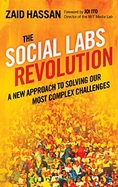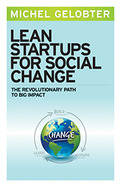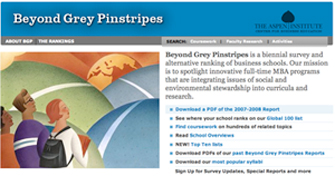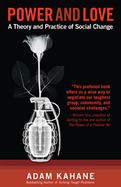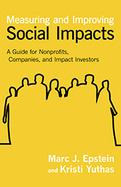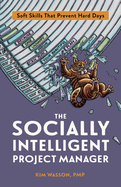People often ask, "If we can put a man on the moon, why can't we solve global hunger?"
- Offers a more dynamic, powerful, and practical way to address difficult social problems than the dominant planning approach
- Features inspiring examples of the results social labs around the world have achieved
- Provides detailed guidance on how to start a social lab in any setting and on any level
People often ask, "If we can put a man on the moon, why can't we solve global hunger?" That very question demonstrates the fatal flaw in the dominant way of dealing with difficult social challenges: they're treated like straightforward technical problems. Organizations do a few studies, establish some goals, devise a plan, and attempt implementation. As a look around the world sadly shows, this hasn't worked.
Issues like poverty, ethnic conflict, and climate change are incredibly dynamic and complex, involving an ever-shifting array of factors, actors, and circumstances. They demand a more fluid and adaptive approach. The answer, says Zaid Hassan, is social labs.
Social labs bring together a diverse a group of stakeholders not to create yet more five-year plans but to develop a portfolio of prototype solutions, test those solutions in the real world, use the data to further refine them, and test them again. Their orientation is systemic-they are designed to go beyond dealing with symptoms and parts to get at the root cause of why things are not working.
Hassan builds on a decade of experience-as well as drawing from cutting-edge research in complexity science, networking theory, and sociology-to explain the core principles and daily functioning of social labs, using examples of pioneering labs from around the world. He describes a fast-growing global movement around a new generation of ambitious social labs that are tackling big challenges such as dramatically reducing global emissions, preventing the collapse of fragile states, and improving community resilience. The Social Labs Revolution offers a new generation of problem solvers an effective, practical, and exciting new vision and guide.
Traditionally, whether creating a new business or a new program, entrepreneurs in all sectors develop a plan, find money to fund it, and pursue it to its conclusion. The problem is, over time conditions can change drastically—but you're locked into your plan. The lean startup is all about agility and flexibility. Its mantra is “build, measure, learn”: create small experimental initiatives, quickly get real-world feedback on them, and use that data to expand what works and discard what doesn't.
Using dozens of social sector examples, Gelobter walks you through the process. The standard approach wastes time and money. The lean startup will help your organization vastly increase the good it does.
2010
-
A new approach, proven in the field, for making progress on our most important and difficult collective challenges
-
Based on Kahanes first-hand experiences working with teams of business, government and civil society leaders around the world
-
Profound, personal and practical
The two main ways that people try to solve their toughest group, community and societal problems are fundamentally flawed. They either push for what they want at all costsin its most extreme form this means waror try to completely avoid conflict, sweeping problems under the rug in the name of a superficial peace. But there is a better way: combining these two seemingly contradictory approaches.
Adam Kahane argues that each is a reflection of two distinct, fundamental drives: power, the single-minded desire to achieve ones solitary purpose; and love, the drive towards unity. They are inextricable parts of human nature, so to achieve lasting change you have to able to work fluidly with both. In fact, each needs the other. As Martin Luther King put it, Power without love is reckless and abusive, and love without power is sentimental and anemic.
Kahane delves deeply in the dual nature of power and love, exploring their complex and intricate interplay. With disarming honesty he relates how, through trial and error, he learned to balance between them, shifting from one to the other as though learning to walkat first falling, then stumbling forward, and finally moving purposefully toward true, lasting reconciliation and progress.
For the last twenty years Kahane has worked around the world on a variety of challenges: economic development, food security, health care, judicial reform, peace making, climate change. He has worked with diverse teams of leadersexecutives and politicians, generals and guerillas, civil servants and trade unionists, community activists and United Nations officials, clergy and artists. He has seen, up close and personal, examples of inspiring progress and terrifying regress. Power and Love reports what he has learned from these hard-won experiences.
- Cowritten by the author of Making Sustainability Work , a book that revolutionized best practices in sustainability and has been widely adopted in boardrooms and classrooms
- Offers a detailed, reliable, and proven approach to rigorously evaluating and increasing the social impact of philanthropic efforts
- Based on interviews with over sixty foundations, nonprofits, corporations, and investment firms and filled with real-life examples
The world is beset with enormous problems that desperately need solutions. And as a nonprofit, NGO, foundation, impact investor, or socially responsible company, your organization is on a mission to provide those solutions.
But what exactly should you do? And how will you know whether it's working? Too many people assume that good intentions will result in meaningful actions and leave it at that. But thanks to Marc Epstein and Kristi Yuthas, social impact can now be evaluated with the same kind of precision achieved for any other organizational function.
Based on years of research and analysis of field studies from around the globe, Epstein and Yuthas offer a five-step process that will help you gain clarity about the impacts that matter most to you and will provide you with methods to measure and improve those impacts. They offer a systematic approach to deciding what resources you should invest, what problem you should address, and which activities and organizations you should support. Once you've made those decisions, they provide tools, frameworks, and metrics for defining exactly what success looks like, even for goals like reducing global warming or poverty that are extremely difficult to measure. Then they show you how to use the data you've gathered to further develop and increase your social impact.
Epstein and Yuthas personally interviewed leaders at over sixty different organizations for this book and include examples from nearly a hundred more. This is unquestionably the most complete, practical, and thoroughly researched guide to taking a rigorous, data-driven approach to expanding the good you do in the world.
High-performing teams don't happen by magic. You need processes that are designed in a socially intelligent way if your team is going to overcome the modern world's tough challenges with coordination. To be a star project manager, you have to communicate with people in their individual learning styles, provide accountability in ways that won't be demotivating, and run meetings and minutes that people won't tune out. Your processes must be constructed in ways that respect the complex realities of social dynamics step by step.
You have to know your team before you can motivate them, and you have to motivate them before you can manage them. In this book are foolproof techniques to make sure your team connects with you, each other, and everyone they need to get the job done. After all, a team should be more than the sum of its parts—and it's up to the project manager to provide the glue that holds it all together.


